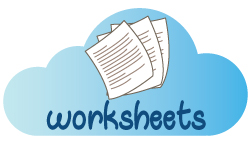The Rules of Capitalization You Must Know!
- Grammar Lessons >
- Capitalization
Overview of Capitalization:
- What Is Capitalization?
- The First Word in a Sentence
- Proper Nouns
- The Pronoun I
- Titles of People and Job Titles
- Kinship Names
- Days and Months
- Laws and Theories
- School Subjects
- Academic Degrees
- Acronyms
- Quotations
- Capitalizing Titles of Books and Movies
- Period and Events
- Common Capitalization Errors
- Capitalization - Quiz
What Is Capitalization?
Capitalization is writing a word with its first letter in uppercase and the remaining letters in lowercase.
Examples:
Ava, School, Home, Street
Capitalization is probably one of the most challenging topics in grammar. It is very common for English learners not to be sure about whether to capitalize a word while they are writing an important school assignment. In this lesson, we are going to outline the most common rules of capitalization you must know.
The First Word in a Sentence
Capitalize the first word in every sentence.
Examples:
Breakfast is the most important meal of the day.
My grandfather has a great sense of humor.
Proper Nouns
Real and Fictional People
Examples:
Abraham married his long-time friend Martha.
One of my favorite characters is Aunt Polly.
Nationalities and Languages
Examples:
The French played really well, but it was the British who won the game.
We are learning German.
Building, Monuments
Examples:
Last week, we visited the Statue of Liberty.
The Chrysler Building is located in Manhattan.
Bodies of Water such as Rivers, Lakes, and Oceans
Examples:
Have you heard of the Smith River?
The Pacific Ocean is the largest ocean in the world.
School, Colleges, and Universities
Examples:
Gerald is studying at Dublin High School.
My sister has graduated from the University of Alabama.
The Pronoun I
Capitalize the pronoun "I" at all times. Don't capitalize other pronouns unless they are used at the beginning of a sentence.
Examples:
I haven't met Mr. Johnson, but I have heard a lot about him.
Do you speak French?
Titles of People and Job Titles
Capitalize the titles of people.
Examples:
This is Dr. Johns.
This was a contribution of President Lincoln.
Capitalize the main words in a title before the name.
Example:
We met Head of Marketing Michael Phelps.
Capitalize titles when used in direct address.
Example:
We would like to hear more from you, Head of Marketing.
Don't capitalize when the title follows the name, or the title is mentioned separately.
Examples:
We met Michael Phelps, head of marketing.
We met the head of marketing.
Kinship Names
Capitalize kinship names used in place of or along with a noun.
Examples:
The toy was bought by Aunt Maria. (along with a noun)
We went to Uncle's house. (in place of a noun)
Capitalize them when used in direct address.
Example:
Please open the door, Mom. (direct address)
Days and Months
Capitalize days, months, and holidays.
Examples:
Jenny was born on a Monday.
Our school opens in October.
Don't capitalize seasons.
Example:
Ashley is waiting for winter to start.
Laws and Theories
Capitalize only proper names.
Example:
Have you studied Newton's third law?
School Subjects
Capitalize the names of language subjects.
Examples:
Richard passed his French test.
Mia couldn't attend her Chinese examination.
Don't capitalize other subjects.
Examples:
Noah is a little weak in math.
Allen came first in the chemistry test.
Academic Degrees
Capitalize academic degrees when the full name of the degree is used.
Example:
Jordan has completed Bachelor of Arts in English.
Don't capitalize general references.
Example:
Emily will finish bachelor's this year.
Capitalize the abbreviations of academic degrees.
Example:
Dad has a Ph. D in law.
Acronyms
Capitalize most abbreviations.
Examples:
Allen works for the FBI. (The Federal Bureau of Investigation)
Dad heard the news on the BBC. (the British Broadcasting Corporation)
This is a PDF file. (printable document format)
Quotations
Capitalize the first word of a quotation when it is a complete sentence.
Example:
Carl said, "Please help me with the new lesson".
Don't capitalize partial sentences used as quotes.
Example:
Mrs. Anderson said the program was "a whiff of fresh air".
Capitalizing Titles of Books and Movies
Capitalize the first word and last word in a title even if it is an article or a preposition.
Example:
I just finished reading After the Funeral.
Capitalize nouns, pronouns, verbs, adjectives, and adverbs.
Examples:
Have you read In Search of Lost Time? (noun and adjective)
The presentation was called How to Sell Well. (verb and adverb)
The book Know Your English was a game changer. (pronoun)
Don't capitalize articles, prepositions, or coordinating conjunctions.
Examples:
Mom bought me a copy of To Write a Book in 30 Days. (article)
"Romeo and Juliet" is a great play by Shakespeare. (coordinating conjunction)
Oliver Goldsmith wrote The Vicar of Wakefield. (preposition)
Period and Events
Capitalize Names Referring to Historical Events, Specific Periods, and Eras.
Examples:
Mike's great grandfather is a World War 1 veteran.
Thomas Jefferson was the American president during the Louisiana Purchase.
The Harlem Renaissance took place in early 20th century.
Don't capitalize the names of centuries.
Example:
The nineteenth century witnessed tremendous amounts of social change across the world.
Common Capitalization Errors
Don't capitalize common nouns for emphasis
Sometimes, people capitalize a certain word or bunch of words in a sentence when they want to show emphasis. This practice is wrong. If there is a need for emphasis, they can achieve it by using bold or italics.
Example:
This is The Most Famous Restaurant in the town. (incorrect)
This is the most famous restaurant in the town. (correct)
Don't capitalize the word after a semicolon
When a semicolon is used to connect two independent clauses, don't capitalize the first word in the second independent clause unless it's a proper noun.
Example:
The Millers will have a busy day this Sunday; They have three events to attend that day. (incorrect)
The Millers will have a busy day this Sunday; they have three events to attend that day. (correct)
Take a Capitalization Quiz Now!

Hone your skills using our free printable Capitalization Worksheets.

